Scale from pipes, also known as mineral deposits, is a buildup of substances that gradually accumulate over time. It can cause problems in plumbing systems, affecting water flow and efficiency.
This buildup can lead to higher energy and water bills, making it necessary to remove it promptly. Fortunately, there are several effective methods for removing scale from pipes. Removing scale from pipes is essential because it enhances water flow and pressure, prevents clogs, and maintains the efficiency of appliances.
Scale can also affect water quality and taste. Regular maintenance and scale removal can extend the lifespan of your plumbing system. Here we will provide you with some effective Methods on how to remove scale from pipes.
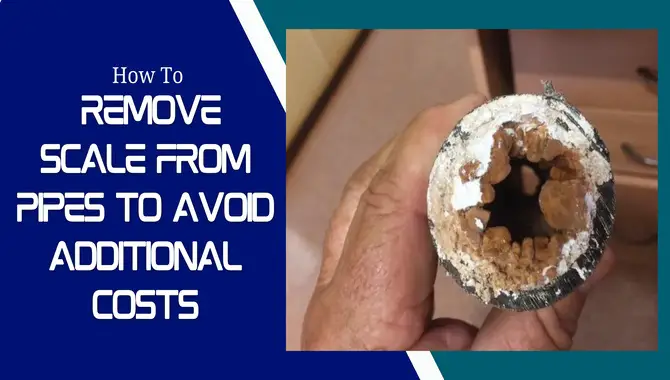
How To Remove Scale From Pipes – By Following 3 Easy Methods
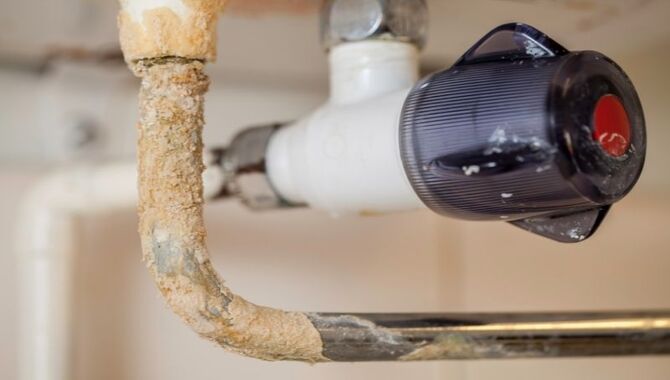
Scale buildup in pipes can cause severe damage to your plumbing system and compromise the quality of your water. It is imperative to remove scale from pipes for several crucial reasons. The scale accumulation can reduce water flow and pressure, resulting in higher energy costs.
The obstruction caused by scale buildup restricts the smooth water flow through the pipes, making your plumbing system less efficient. So It’s essential to remove scale from pipes. Here we give you three effective methods on how to remove scale from pipes.
Method 1: Using Vinegar And Baking Soda To Remove The Scale
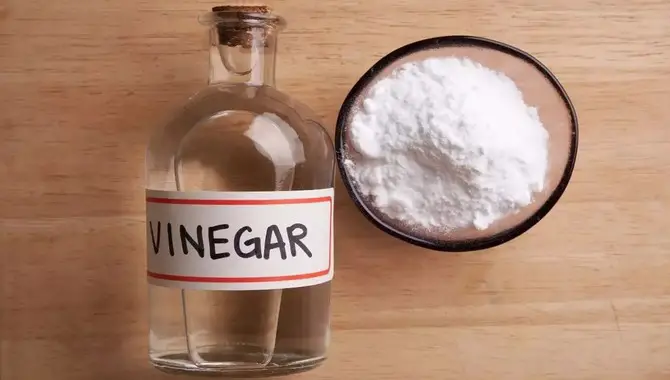
You can easily remove scale from your pipes using natural and cost-effective solutions like vinegar and baking soda. Scale buildup in pipes can cause restricted water flow, decreased water pressure, and increased energy usage, so it’s essential to address it promptly. To remove the scale, create a paste by mixing vinegar and baking soda in equal parts.
Then, apply the paste to the areas of your pipes covered in scale. Allow it to sit for several hours or overnight to allow the vinegar and baking soda to break down the scale. Finally, rinse the pipes with hot water to remove the loosened scale. Regular maintenance and prevention are crucial for avoiding scale buildup in pipes. Consider implementing a water softener system or using descaling agents as long-term solutions to prevent future scale formation, keeping your pipes and plumbing system in optimal condition.
Method 2: Using Calcium, Lime, And Rust Remover Products To Remove Scale
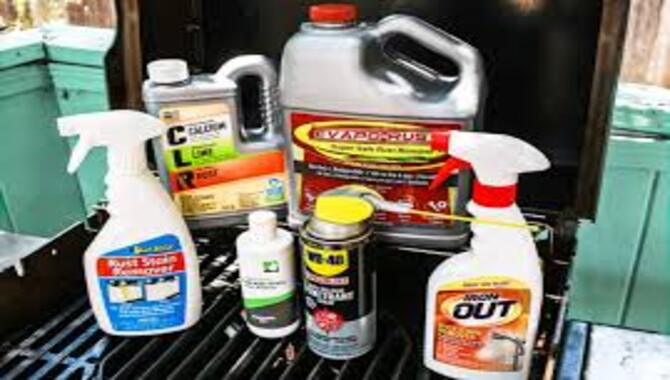
Scale buildup in pipes can restrict water flow and reduce the efficiency of your plumbing system. It is essential to remove scale from pipes to prevent costly repairs and improve water quality. Calcium, lime, and rust remover products break down scale deposits and restore pipe function. By following the instructions on the product label, you can safely and properly use these products to remove scale buildup.
- Regular maintenance and preventative measures can help minimize scale buildup in pipes, saving you money in the long run. Using calcium, lime, and rust remover product is a practical solution for dealing with scale in your plumbing system. These products are designed to dissolve and remove the mineral deposits contributing to scale buildup. They work by breaking down the calcium and lime that accumulate over time, restoring the flow of water and improving the overall efficiency of your pipes.
- To make the most of these products, it’s essential to read and follow the instructions on the packaging carefully. This will ensure that you use them safely and effectively. By incorporating these products into your regular maintenance routine, you can prevent costly repairs and extend the lifespan of your plumbing system. Say goodbye to scale and hello to improved water quality and efficiency with calcium, lime, and rust remover products.
Method 3: Soaking In Vinegar To Remove The Scale
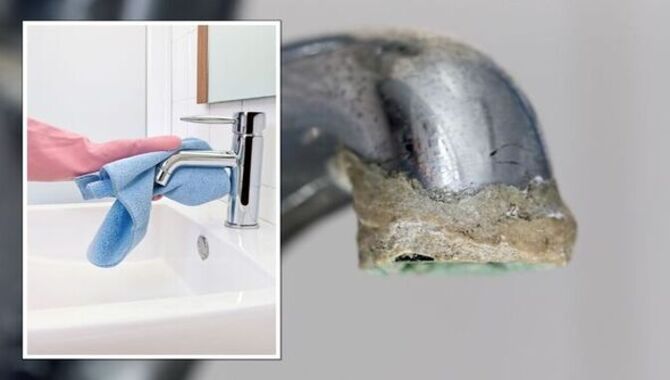
Soaking pipes in vinegar, a natural and affordable solution, effectively removes scale and mineral deposits caused by hard water. By utilizing the acidity of vinegar, you can dissolve calcium and magnesium buildup, restoring the efficiency of your plumbing system.
To apply this method, submerge the affected pipe in a container filled with vinegar or wrap a cloth soaked in vinegar around the pipe. Allow it to sit for several hours or overnight, enabling the vinegar to break down the scale. Afterward, rinse the pipe to eliminate any remnants. Regularly implementing this DIY technique can help improve water flow, prevent plumbing issues, and maintain the longevity of your plumbing system.
How To Remove Scale From Other Appliances And Fixtures
One can consider several effective methods to remove scale from other appliances and fixtures. Hard water can cause calcium and magnesium buildup, leading to issues with plumbing, devices, and fixtures. One option is to use vinegar or lemon juice, natural solutions for removing mineral deposits. Soak the affected area or wrap it in a cloth with vinegar or lemon juice.
For larger appliances like coffee makers or kettles, a descaling solution specifically designed for these items can be used. Regular cleaning and maintenance of devices are essential to prevent scale buildup in the first place. Installing a water softener or using a water filtration system can also help reduce scale formation. Hiring a professional plumber for more advanced removal techniques may be necessary for severe scale buildup in pipes.
The Best Long-Term Scale Prevention Solution: Water Softeners
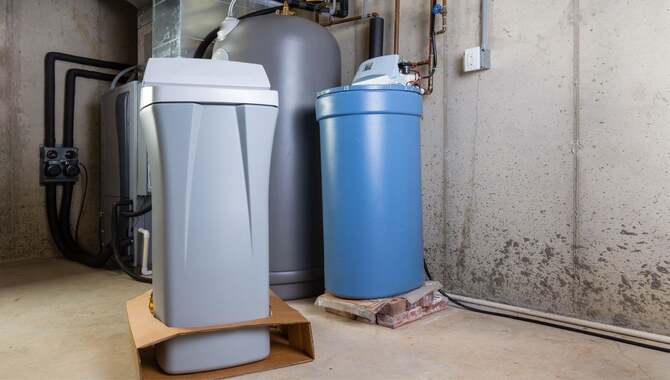
The best long-term scale prevention solution is using water softeners. Understanding the scale problem that occurs due to hard water is crucial. Hard water contains high levels of minerals like calcium and magnesium, which lead to scale buildup in pipes. This buildup can cause blockages and reduce water flow.
Water softeners remove these minerals from the water supply, preventing scale formation and protecting your plumbing system. Consider water hardness, size, and efficiency when choosing a water softener. Proper installation and regular maintenance are vital for optimal performance. Water softeners can save money by preventing scale buildup and avoiding costly repairs or replacements in the future.
Common Signs Of Scale Buildup In Plumbing Systems
It is important to note that the presence of these signs does not guarantee scale buildup, as they could also indicate other plumbing issues. If you suspect scale buildup in your plumbing system, it is recommended to consult a professional plumber to assess the situation and provide appropriate solutions. Here are common Signs of Scale Buildup in Plumbing Systems:
- Reduced water flow: Scale buildup inside pipes can restrict water flow, reducing water pressure and slower water flow from faucets, showers, or other plumbing fixtures.
- Clogged or partially blocked pipes: As scale accumulates over time, it can form thick layers that eventually lead to partial or complete blockages in the pipes. This can result in frequent clogs, slow drains, or even complete pipe blockages.
- Increased water bills: Scale buildup can cause inefficiencies in the plumbing system, leading to increased water usage and higher water bills. If you notice a sudden and unexplained increase in your water bills, it could indicate scale buildup affecting the system’s performance.
- Fluctuating water temperature: Scale buildup can interfere with adequately functioning water heaters or boilers. If you experience inconsistent water temperature, such as sudden bursts of hot or cold water during a shower, it could indicate scale affecting the heating elements or pipes.
- Noisy plumbing system: Scale buildup can obstruct the pipes, causing turbulence and disruptions in the water flow. This can result in banging or knocking sounds from the plumbing system, particularly when turning faucets on or off.
Conclusion
Removing scale from pipes is essential for maintaining the efficiency of your plumbing system and saving money in the long run. Scale buildup can lead to reduced water flow, clogged pipes, increased energy consumption, and costly repairs. You can use various methods to remove scale from your lines, such as vinegar, baking soda, calcium, lime, and rust remover products.
Soaking in vinegar can also help remove scale from smaller fixtures and appliances. However, installing a water softener is the best long-term solution for preventing scale buildup. It’s essential to watch for common signs of scale buildup in your plumbing system, such as decreased water pressure or unusual noises. The above methods on how to remove scale from pipes will be beneficial for you.
Frequently Asked Questions
What Causes Scale Buildup In Pipes?
Scale buildup in pipes is mainly caused by hard water, which has a high calcium and magnesium mineral content. When heated, these minerals can form scale. Additionally, pipe corrosion and insufficient water treatment systems can contribute to scale accumulation.
Are There Any Household Products That Can Remove Scale From Pipes?
Vinegar, lemon juice, and baking soda are effective household products for removing scale from pipes. Boiling water can also help dissolve the buildup. However, it’s crucial to exercise caution and follow safety guidelines when using these products for pipe cleaning.
What Are The Potential Consequences Of Scale Buildup In Pipes?
Scale buildup in pipes can cause reduced water flow, lower water pressure, pipe corrosion, leaks, decreased appliance lifespan, and reduced heating system efficiency, resulting in higher energy costs.
Are There Any Natural Or Diy Solutions For Removing Scale From Pipes?
Yes, there are natural and DIY solutions for removing scale from pipes. Vinegar can be used as a natural solution, while a mixture of baking soda and lemon juice or citric acid is a standard DIY option.
Can Scale Buildup In Pipes Lead To More Severe Plumbing Issues?
Yes, the buildup of scale in pipes can result in more severe plumbing problems. Scale can restrict water flow, lower water pressure, and lead to pipe corrosion and damage. Regularly removing scale is crucial to avoid expensive repairs down the line.

I am passionate about tools and electric work. I love finding new tools and experimenting with them.

